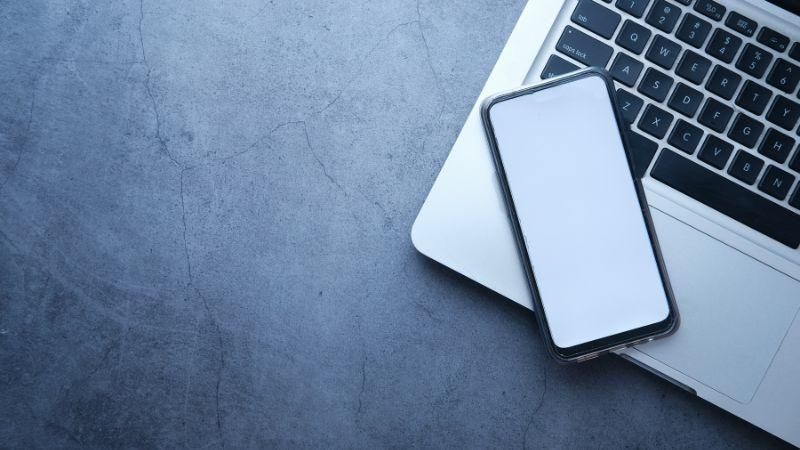Can a Smartphone Replace a Computer?

The development of the IT industry has been a powerful boost to mobile devices that can cope with tasks at office and household level. Since the early 2000s, analysts have predicted that personal computers and laptops will soon be covered in dust and that users will switch to modern smartphones for their mass consumption. All you have to do is buy a new device, and it will perform all the functions of a computer perfectly. But despite predictions, we are not seeing widespread abandonment of the PC. So what is stopping mobile devices from taking over?
Complete Work: Computer Only
Smartphones and tablets are a great option for news reporters, secretaries, administrators and top managers. If you consider other professionals who multitask, you can’t do without a computer. This is because many programmes are not adapted to the Android and iOS operating systems.
| Profession | Example |
| Accountant | Impossible to operate without specialized accounting systems |
| Economist | Requires a large screen to view an endless Excel spreadsheet in order to operate successfully |
| Designer | Uses Photoshop and CorelDRAW regularly in the course of work, which cannot be installed on a smartphone |
The above examples are just a small part of the difficulties that professionals in various fields will face without a computer. In addition, staring at a small screen all day can cause eye strain and fatigue.
Capacity: Smartphones are Incomparable to Computers
If you imagine that one brand has released a smartphone powerful enough for office work, problems can arise as the workload increases. For example, a professional uses several resource-intensive programs that require a lot of performance. If the device parameter is low, crashes and hangups will occur.
Perhaps the TOP gadgets can withstand the load. But in the case of mid-range and obsolete devices, problems cannot be avoided. If we consider low-budget smartphone models, then there is no need to talk about quality performance. They will not be able to handle a serious application.
As for computers and laptops – on their side:
- processing power;
- clear reception of weak signal by wireless modules;
- the ability to increase storage capacity through the use of additional storage devices (cheaper than for smartphones).
Also, don’t forget about battery life. While laptops work well with serious applications throughout most of the day, mobile devices will give up by lunchtime. For information about battery life and other parameters, see https://www.lifewire.com/how-long-does-a-laptop-battery-last-5186206.
Screen: Small Size as a Negative Factor
As a rule, 6-7 inch smartphone screens are considered large. Such devices are bulky and not always comfortable. In the tablet segment, 12-inch models also stand out. Sometimes it is difficult to work on them.
As for laptops – the full models have 15-inch displays. If we consider the computers, then the diagonal monitor is limited solely by the allocated budget.
When perceiving the information it is much easier to highlight certain points, when you see all the data in its entirety. If, however, only a small part is displayed, you have to constantly compare segments. If smartphones/tablets regularly scroll through text or pictures, concentration is impaired, which sometimes leads to a complete breakdown of the task at hand.
Consequently, smartphones and tablets are only relevant for websites and apps that are adapted for mobile devices. For example, online shops or casinos are increasingly creating programmes for their use with smartphones. This allows you to purchase goods or have a great time at the slots. If you are interested in gambling, it is important to choose a platform wisely. To do so, browse through the online casino uk, which provides basic information about the virtual sites. You might find a suitable option according to your personal needs.
Smartphones and Tablets for Work: Unreasonably High Cost
Miniature size and portability often have an impact on the cost of a device. For example, for the price of a top-of-the-range mobile device, it is possible to buy a reasonably productive computer or laptop. The same is true for almost all segments (both ultra-expensive and budget). The only difference is that a low-priced mobile device is only suitable for making calls and taking notes. If you buy a computer for the same price, however, it will cope with standard office tasks.
The trend has been and will continue. And if you have to choose between compactness and performance, professionals will in any case choose the second item. You can read more about the parameter on the page https://en.wikipedia.org/wiki/Computer_performance.
Smartphones and the Nature of Their Use
Despite the obvious advantages of computers, the benefits of using smartphones should not be overlooked. They are relevant when you are not doing serious work. You can use your mobile device to send mail, edit a simple video, and communicate on social media. In addition, smartphones can also be used:
- pay for purchases;
- read books;
- work with maps of the area;
- view the weather forecast.
If you don’t need to perform complex graphics, text or computing tasks, choose a mobile device. It is easier to understand and always at your fingertips. And some of the functions are available even without an internet connection.
Conclusions
At the moment, smartphones cannot fully replace computers and laptops. This is due to the low performance of mobile devices in comparison to PCs. In addition, price plays a big role. In fact, for the same cost, you can get a top-of-the-line smartphone aimed at a specific task, or a reasonably good performance computer for working with a lot of business software.
